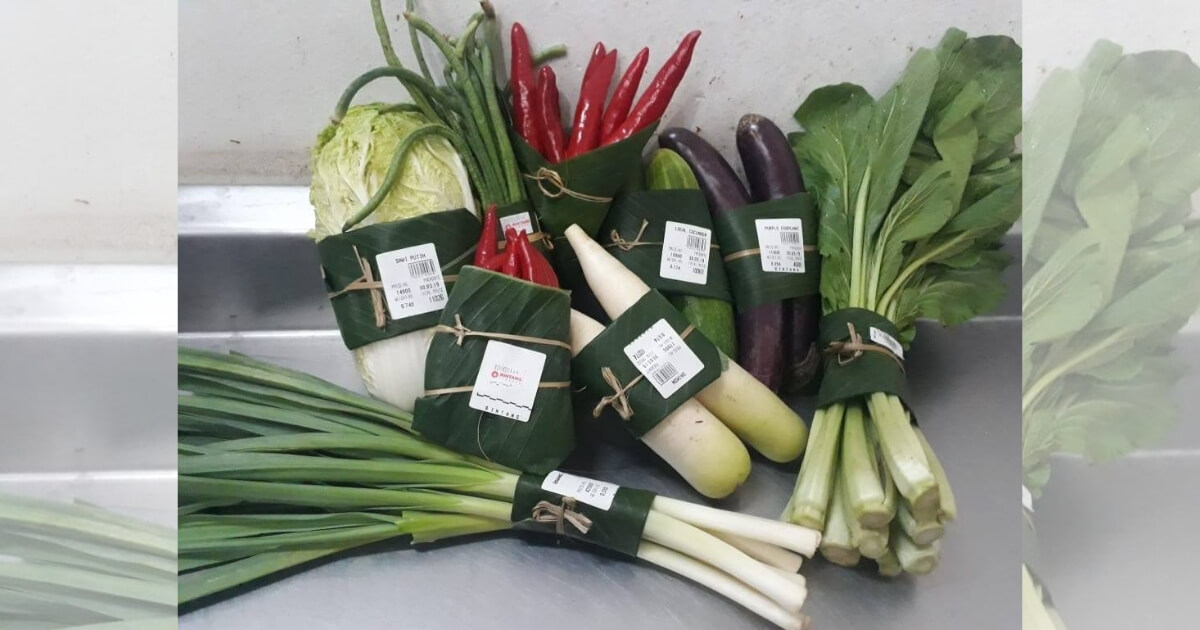Bali’s got major environmental issues, especially in regards to plastic waste. But a supermarket chain on the island recently became the talk of social media for their new green approach to packaging that will hopefully serve as an inspiration to others.
Bintang Supermarket, which has locations in Ubud and Seminyak, recently switched from using plastic bags to banana leaves to wrap their vegetables, such as eggplants, red chilli, and leeks. Based on this viral post from their Facebook page, the supermarket plans to gradually reduce plastic packaging for all of their fresh produce.
https://www.facebook.com/bintangsupermarket/photos/a.1679694998731452/2418938211473790/?type=1&theater
“We have stopped using plastic bags for our customers and we don’t sell straws, styrofoam (packaging) or plastic bags anymore. Aside from that, we also use bamboo rope as the strap [used to tie the banana leaves around the produce], because they’re generally available at markets, especially in Bali,” Bintang Supermarket operational manager Agus Sanjaya told Kompas yesterday.
Agus said that banana leaves were a natural alternative to plastic bags due to their low price, environmentally-friendly features and the fact that they have historically been used to wrap food in many Southeast Asian countries.
The banana leaf packaging will probably remind some people of Rimping supermarket in Chiangmai, Thailand, which went viral recently for similarly utilizing banana leaves as food packaging.
The supermarket introduced the banana leaf packaging program in response to Bali’s well-documented plastic waste problems. The island-province’s governor, Wayan Koster, passed an island-wide ban on single-use plastics like straws, styrofoam and poly bags to curb their use in December last year.
The plastic waste problem in Bali was perhaps never more apparent than in late 2017 when officials declared the island was in a state of “garbage emergency” due to after stretches of its popular tourist beaches were swamped with plastic waste.
Also read: Planet Plastic: The colossal challenge of cleaning up Indonesia’s Ciliwung River (Video)
In general, Indonesia holds the unfortunate distinction of being the world’s second largest producer of plastic marine waste, behind only China, with a total of 64 million tons of plastic waste per year coming out of the country, according to data from the Indonesian Plastic Industry Association (INAPLAS) and the Central Statistics Agency (BPS).
A great deal of that waste comes from the 9.8 billion (!) plastic bags the country is estimated to use each year. The Indonesian government aims to reduce plastic waste by 70% by 2025.
Last December, an aerial image of a social media influencer lying surrounded by piles of rubbish on Batu Bolong Beach went viral after her travel vlogger partner posted it to his Instagram account.
Wildlife and the environment stand to suffer the most from the country’s obsession with plastic use. Last year, a dead sperm whale washed up on the shores of Wakatobi with 5.9 kilograms of plastic waste in its stomach, including plastic bags, bottles, and even flip-flops.
Recently, a photo of an Indomie instant noodle wrapper found in a pile of garbage on a beach in Malang Regency, East Java went viral because the packaging indicated a special one-off product to celebrate Indonesia’s 55th independence day — which was 19 years ago.





Reader Interactions